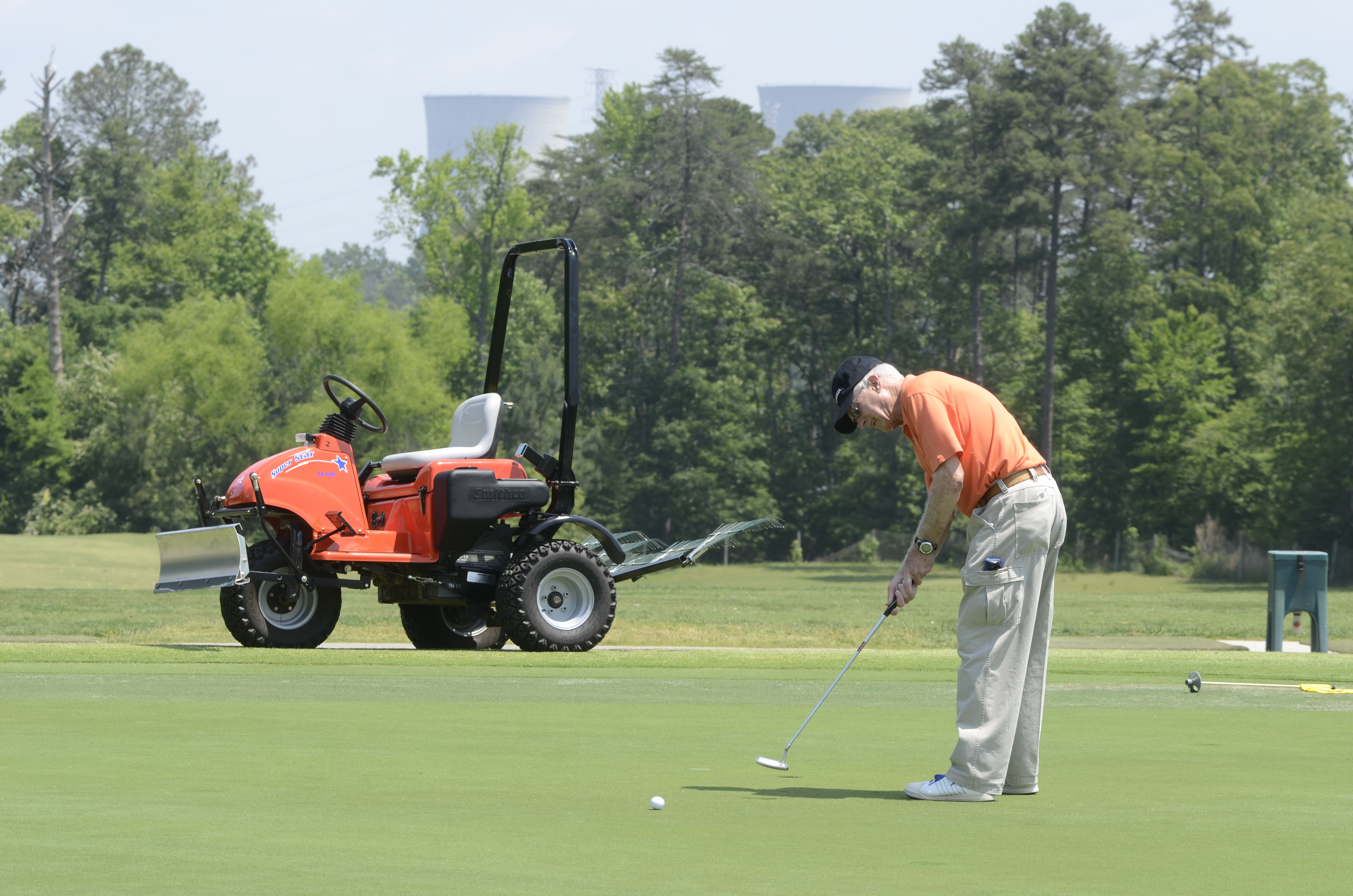Mitchell Sivley turned the ignition key to demonstrate a piece of new mowing equipment at the Bear Trace at Harrison Bay.
There was no noise coming from the mower.
Sivley, the assistant superintendent, looked down to make sure he turned on the riding machine. He confirmed what he knew.
Only the birds above and some chatter among the guests in attendance for the unveiling could be heard.
"It's on," he said. "I promise."
He flipped a lever with his right hand and the mower began humming with its blades turning at a decibel level that allowed guests from the Tennessee Valley Authority, the Tennessee Golf Association and the Tennessee Department of Environment and Conservation to continue their conversations without interruption or raising their voices.
The Bear Trace at Harrison Bay is the first American public golf course to begin using an entire fleet of all-electric mowers to care for its greens, teeing grounds and other closely mowed areas.
The unveiling of the new machines Tuesday continued a trend of the Bear Trace leading the local area, the Southeast and the country in efforts to be environmentally responsible.
"For years, the golf course industry had been labeled as a polluter," course superintendent Paul Carter said. "Having the ability to use this equipment is going to make a world of difference. It's going to make a difference for us as a crew, for the golfers who play here and for the wildlife."
The fleet of Jacobsen electric mowers came with an up-front price tag of $414,000 to the state but without one cent coming from taxpayer dollars, according to TDEP commissioner Bob Martineau.
"This was penalty money," Martineau said. "The TVA paid $26 million to the state as part of a settlement of a lawsuit and the money is to be used on projects that reduce emissions."
The drastic reduction in use of gas-powered vehicles, mowers, chainsaws, hedge-trimmers and weed-whackers -- by using electric or battery-operated equipment -- is already showing on the bottom line of running the golf course in the state park.
"We stopped using gasoline-powered mowers on March 3, and in the first 60 days we cut out 317 gallons of gasoline that we used last year," Carter said. "And our electricity bill went up a whopping $47.
"And this is just in the spring."
Golf courses across the country -- more specifically, the superintendents who care for them -- likely will watch and follow the trend set by Carter and his staff.
Starting an environmental trend at Bear Trace is nothing new. The course and Carter have been lauded in various golf and enviromental publications -- and by the USGA -- for attracting a nest of bald eagles beside the 10th green.
They're being leaders once again.
"It's exciting far beyond the reach of the Bear Trace property," said Greg Lyman, director of environmental programs for the Golf Course Superintendents Association of America. "This offers a template. The move to electric power, in some sense, has been the Holy Grail of maintenance equipment."
Electric cars scoot around downtown Chattanooga. Now electric mowers shave the greens at Bear Trace. And the equipment company, Jacobsen, has a series of mowers that allows the Bear Trace eagles to sleep in a bit.
"I think this is a glimpse into the future, and it's exciting far beyond the Bear Trace property," Lyman said. "This is a course that is nestled within a state park system. They're doing extraordinary work.
"Golfers now can look down at the mowing equipment and then look up on No. 10 to check on the eagles."
